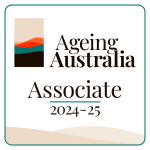Essential Nursing Skills for 2025: NSW Healthcare Evolution

Top In-Demand Nursing Skills for 2025: Preparing for the Future of Healthcare in NSW
The landscape of nursing in New South Wales (NSW) is undergoing a profound transformation. As we approach 2025, the healthcare sector faces unprecedented challenges and opportunities, demanding a new breed of nurses equipped with a diverse and adaptable skill set. This evolution is not just about staying current; it’s about anticipating and shaping the future of healthcare delivery.
In this comprehensive guide, we’ll explore the top in-demand nursing skills for 2025, examining how these competencies will meet the evolving healthcare demands in NSW. From clinical expertise to technological proficiency, from leadership abilities to empathetic care, we’ll delve into the multifaceted role of the modern nurse and how you can prepare for this exciting future.
The Evolving Landscape of Nursing in NSW
Nursing in NSW has come a long way from its humble beginnings. What started as basic patient care has evolved into a complex and integral component of the healthcare system. Today, nurses are at the forefront of healthcare innovation, driving improvements in patient outcomes and spearheading new models of care delivery.
The NSW Health system has been proactive in recognizing and adapting to these changes. Initiatives like the Emergency Care and Assessment Treatment (ECAT) Program exemplify the focus on standardizing care practices across the state. This program, implemented in recent years, has not only improved patient care but also enhanced staff satisfaction by providing clear, consistent protocols for emergency care.
As we look towards 2025, several key factors are shaping the future of nursing in NSW:
- Technological Advancements: The integration of artificial intelligence (AI) and data science into healthcare is revolutionizing nursing practice. Nurses are no longer just data collectors; they’re becoming skilled data analysts, using advanced tools to predict outcomes and improve care.
- Changing Demographics: An aging population and increasing chronic disease burden are placing new demands on the healthcare system. Nurses need to be equipped to handle complex, long-term care needs.
- Shift to Community-Based Care: There’s a growing emphasis on preventative care and managing health conditions in community settings. This shift is evidenced by the projected 45% growth rate for Nurse Practitioners by 2032, many of whom will work in nurse-led clinics.
- Workforce Challenges: Australia is facing a significant nursing shortfall, with projections indicating a need for approximately 85,000 additional nurses by 2025 and 123,000 by 2030. This shortage underscores the critical need for efficient, skilled nurses who can navigate complex healthcare environments.
Given these trends, let’s explore the top in-demand nursing skills that will be crucial for success in 2025 and beyond.
Top In-Demand Nursing Skills for 2025
1. Clinical Competence
At the heart of nursing practice lies clinical competence. In 2025, this foundational skill will encompass:
- Evidence-Based Practice: Nurses must be adept at interpreting and applying the latest research to their clinical decision-making. This involves staying current with medical literature, understanding statistical analyses, and critically evaluating study designs.
- Advanced Medical Knowledge: As healthcare becomes more complex, nurses need a deep understanding of various medical conditions, treatments, and technologies. This includes knowledge of pharmacology, pathophysiology, and advanced treatment modalities.
- Real-World Scenario Proficiency: The ability to apply knowledge in diverse, often unpredictable clinical situations is crucial. This includes quick thinking in emergencies, adapting care plans for patients with multiple comorbidities, and navigating ethical dilemmas.
Associate Professor Annette Solman, Chief Executive of the Health Education and Training Institute, emphasizes, “Clinical competence is paramount in ensuring patient safety and optimal outcomes.” This statement underscores the critical nature of this skill set in the evolving healthcare landscape.
2. Communication Skills
Effective communication is the bedrock of quality healthcare. By 2025, nurses will need to master:
- Verbal and Written Communication: Clear, concise, and empathetic communication with patients, families, and healthcare team members is essential. This includes explaining complex medical information in understandable terms and documenting patient care accurately and comprehensively.
- Active Listening: The ability to truly hear and understand patients’ concerns, preferences, and experiences is crucial for providing patient-centered care. Active listening involves picking up on non-verbal cues, asking clarifying questions, and demonstrating empathy.
- Fostering Collaborative Environments: Nurses play a pivotal role in creating a positive, collaborative atmosphere within healthcare teams. This involves facilitating open dialogue, mediating conflicts, and ensuring all team members’ voices are heard.
The NSW Health Emergency Care and Assessment Treatment (ECAT) Program has highlighted the importance of consistent communication protocols. This standardization has led to improved patient care and increased staff satisfaction, demonstrating the tangible benefits of enhanced communication skills.
3. Empathy and Compassion
In an era of high-tech healthcare, the human touch remains irreplaceable. Empathy and compassion will be more critical than ever in 2025:
- Patient-Centered Care: This approach involves tailoring care to individual patient needs, preferences, and values. It requires nurses to see beyond the medical diagnosis and consider the whole person, including their cultural background, personal beliefs, and life circumstances.
- Respecting Patient Goals and Experiences: Nurses must be adept at aligning care plans with patients’ personal goals and life experiences. This might involve working with a patient to find a treatment plan that fits their lifestyle or helping them navigate end-of-life decisions in accordance with their wishes.
The SESLHD Nursing and Midwifery Strategy emphasizes this point: “We will provide compassionate and respectful care that prioritizes the unique goals, expectations and experiences of each person.” This patient-centered approach will be a hallmark of nursing excellence in 2025.
4. Collaborative Practice
As healthcare becomes increasingly complex, no single profession can meet all patient needs. Collaborative practice will be essential:
- Interprofessional Education: Nurses will need to engage in learning opportunities that involve collaboration with other healthcare professionals. This might include joint training sessions, simulations, or case studies that bring together nurses, doctors, pharmacists, and other allied health professionals.
- Integration into Collaborative Care Models: Nurses will be key players in multidisciplinary care teams. This involves understanding the roles and expertise of various healthcare professionals, effectively communicating across disciplines, and working together to develop comprehensive care plans.
The success of collaborative models is evident in initiatives like the WHIN Coordinator Program, which places nurses in schools. This program demonstrates how nurses can work effectively in non-traditional settings, collaborating with educators and other professionals to provide holistic, community-based care.
5. Leadership
As the largest group of healthcare professionals, nurses are increasingly taking on leadership roles. Key leadership skills for 2025 include:
- Team Guidance: Nurses will need to inspire and motivate healthcare teams, fostering a positive work environment and driving quality improvement initiatives.
- Ensuring High-Quality Care: This involves not only providing excellent care personally but also creating systems and processes that ensure consistent, high-quality care across the board. It includes implementing evidence-based practices, mentoring junior staff, and advocating for patient safety.
- Strategic Thinking: Nurse leaders will need to think beyond day-to-day operations, considering long-term trends and planning for future healthcare needs. This might involve developing new care models, advocating for policy changes, or implementing innovative technologies.
The Wellbeing Nurse Capability Framework 2024-2029 provides a structured approach to developing these leadership skills, outlining foundational, adept, and advanced levels of proficiency in key domains.
Current Trends and Future Projections
Workforce Shortfall
The nursing workforce shortage is one of the most pressing challenges facing the healthcare system:
- Projected Numbers: Australia is expected to face a shortfall of approximately 85,000 nurses by 2025 and 123,000 by 2030 under current settings.
- Impact on Healthcare Access: This shortfall could significantly impact the community’s ability to access necessary health services, particularly in rural and underserved areas.
Health Workforce Australia (HWA) stresses the need for coordinated national planning to address this issue, emphasizing retention, productivity, innovation, and reform. Strategies might include:
- Improving working conditions to retain experienced nurses
- Increasing nursing education capacity
- Developing more efficient care models that maximize the use of nursing skills
Technological Integration
The integration of technology, particularly AI, is set to transform nursing practice:
- AI in Healthcare: The AI market in healthcare is predicted to reach over $36 billion by 2025. This technology will augment nursing practice in various ways, from predictive analytics for patient deterioration to automated documentation systems.
- Data Analysis Capabilities: Nurses will increasingly use AI-powered tools to analyze patient data, predict outcomes, and make informed care decisions. For example, models like the Gray GM (1,1) are being used to forecast nursing demand and optimize workforce planning.
While these advancements offer exciting possibilities, they also raise important ethical considerations. Nurses will need to ensure that AI integration does not compromise patient privacy or safety and that it enhances rather than replaces human care.
Nurse-Led Clinics
Nurse-led clinics are expected to play a larger role in transforming care delivery:
- Growth Projections: The number of Nurse Practitioners is projected to grow by 45% by 2032, with many working in nurse-led clinics.
- Role in Community Health: These clinics focus on preventative care and managing chronic conditions in community settings. They offer a cost-effective way to provide accessible, high-quality care, particularly in underserved areas.
The success of nurse-led clinics demonstrates the expanding role of nurses in healthcare delivery and their ability to provide comprehensive, patient-centered care.
Impact Analysis
The evolving nursing landscape will have far-reaching impacts:
On Healthcare Delivery
- Increased emphasis on preventative care and community-based services
- More efficient use of healthcare resources through AI-assisted decision-making
- Greater accessibility to care through nurse-led clinics and telehealth services
On Patient Outcomes
- Improved management of chronic conditions through continuous, personalized care
- Enhanced patient satisfaction due to more empathetic, patient-centered approaches
- Better health outcomes resulting from evidence-based practices and collaborative care models
On Nursing Education and Training
- Curriculum changes to incorporate technology skills and interprofessional education
- Increased focus on continuous professional development to keep pace with rapidly evolving healthcare practices
- Greater emphasis on leadership training to prepare nurses for expanded roles
Comparisons with Traditional Nursing Models
Hospital Settings vs. Nurse-led Clinics
| Aspect | Hospital Settings | Nurse-led Clinics |
|---|---|---|
| Focus | Acute care | Preventative care and chronic disease management |
| Cost | Generally higher | More cost-efficient |
| Accessibility | Centralized | Community-based, more accessible |
| Patient Interaction | Often shorter-term | Continuous, long-term relationships |
AI-integrated Nursing vs. Traditional Nursing
| Aspect | Traditional Nursing | AI-integrated Nursing |
|---|---|---|
| Data Analysis | Manual, time-consuming | Rapid, AI-assisted analysis |
| Decision Making | Based on immediate observations and experience | Augmented by predictive analytics and large-scale data trends |
| Documentation | Manual entry, prone to errors | Automated systems, potentially more accurate |
| Patient Monitoring | Periodic checks | Continuous monitoring with AI-assisted alert systems |
Collaborative Care Models vs. Solo Practice
| Aspect | Solo Practice | Collaborative Care Models |
|---|---|---|
| Scope of Care | Limited to nursing expertise | Comprehensive, multidisciplinary approach |
| Communication | Primarily nurse-patient | Complex network of interprofessional communication |
| Decision Making | Individual | Team-based, considering multiple perspectives |
| Resource Utilization | May be less efficient | Optimized use of diverse skills and resources |
Challenges and Solutions
Addressing the Workforce Shortfall
Challenge: The projected nursing shortfall poses a significant threat to healthcare delivery.
Solutions:
- Coordinated National Planning: Implement comprehensive workforce strategies that address recruitment, retention, and skill development.
- Retention Strategies: Improve working conditions, offer career advancement opportunities, and provide mentorship programs to retain experienced nurses.
- Education Expansion: Increase nursing education capacity and offer more flexible learning options.
- Skill Mix Optimization: Develop roles for nursing assistants and other support staff to allow nurses to work at the top of their license.
Integrating Technology Ethically
Challenge: Ensuring ethical and effective integration of AI and data science into nursing practice.
Solutions:
- Training in Informatics Competencies: Incorporate technology and data science courses into nursing curricula and continuing education programs.
- Ethical Guidelines for AI Use: Develop and implement clear guidelines for the ethical use of AI in healthcare, addressing issues of privacy, consent, and decision-making autonomy.
- Collaborative Technology Development: Involve nurses in the development and implementation of healthcare technologies to ensure they meet practical needs and ethical standards.
- Ongoing Evaluation: Regularly assess the impact of technological interventions on patient outcomes and nursing practice, making adjustments as needed.
Ethical Considerations and Best Practices
Patient Privacy in AI-integrated Care
As AI becomes more prevalent in healthcare, protecting patient privacy is paramount. Nurses must:
- Understand data protection regulations and apply them rigorously
- Ensure informed consent for data collection and use
- Advocate for secure systems and ethical AI algorithms
Workforce Diversity and Inclusion
A diverse nursing workforce is crucial for providing culturally competent care. Best practices include:
- Implementing inclusive recruitment and retention strategies
- Providing cultural competency training
- Creating mentorship programs for underrepresented groups in nursing
Maintaining Patient-Centered Care
In the face of technological advancements, maintaining a focus on patient-centered care is critical. This involves:
- Balancing technology use with human touch and empathy
- Involving patients in decision-making about their care
- Tailoring care plans to individual patient needs, values, and preferences
Success Stories and Case Studies
WHIN Coordinator Program
The WHIN (Wellbeing Health In-reach Nurse) Coordinator Program in NSW schools exemplifies the shift towards more holistic and community-based healthcare delivery. This innovative program places nurses in schools to provide comprehensive health services, including:
- Health assessments and screenings
- Health education and promotion
- Care coordination for students with complex health needs
Results have shown improved health outcomes for students, better school attendance, and enhanced collaboration between health and education sectors.
Standardization of Care Practices (ECAT Program)
The Emergency Care and Assessment Treatment (ECAT) Program, implemented across NSW, demonstrates the power of standardized care protocols. Key outcomes include:
- Reduced wait times in emergency departments
- Improved patient satisfaction
- Enhanced staff confidence and job satisfaction
This program showcases how systematic approaches to care delivery can lead to significant improvements in both patient outcomes and healthcare efficiency.
Tools and Resources for Skill Development
AI and Data Science Tools
- IBM Watson Health: Offers AI-powered solutions for clinical decision support and population health management.
- Google Health: Provides tools for medical imaging analysis and predictive modeling.
- Coursera’s “AI in Healthcare” Specialization: Offers comprehensive training in AI applications for healthcare professionals.
Virtual Health Care Platforms
- Teladoc Health: A leading telehealth platform that nurses can use to deliver virtual care.
- Medici: An app that facilitates secure messaging and video consultations between healthcare providers and patients.
- Healthdirect Australia: Provides a range of telehealth services and resources for healthcare professionals.
Professional Development Frameworks
- Wellbeing Nurse Capability Framework 2024-2029: Outlines key competencies for nurses at different career stages.
- Australian Nursing and Midwifery Federation’s Continuing Professional Development (CPD) Portal: Offers a range of online learning resources and tracks CPD hours.
- NSW Health’s My Health Learning: Provides access to a wide range of professional development courses for healthcare workers.
How to Develop Essential Nursing Skills for 2025
- Conduct a Personal Skills Audit:
- Use the Wellbeing Nurse Capability Framework to assess your current skill level
- Identify gaps between your current skills and those needed for 2025
- Create a Tailored Development Plan:
- Set specific, measurable goals for skill development
- Prioritize skills based on your career aspirations and healthcare trends
- Engage in Cross-Disciplinary Learning:
- Participate in interprofessional education programs
- Seek opportunities to shadow or collaborate with professionals from other healthcare disciplines
- Practice Scenario-Based Learning:
- Engage in simulations that mimic complex, real-world healthcare situations
- Participate in case studies that challenge your clinical reasoning and decision-making skills
- Develop a Technology Mindset:
- Take courses in health informatics and data analysis
- Familiarize yourself with AI and machine learning applications in healthcare
- Stay updated on emerging technologies in nursing practice
- Cultivate Emotional Intelligence:
- Practice active listening and empathy in your daily interactions
- Seek feedback on your communication and interpersonal skills
- Engage in reflective practice to enhance self-awareness
- Pursue Leadership Opportunities:
- Take on project lead roles in your workplace
- Participate in or initiate quality improvement initiatives
- Consider pursuing advanced degrees or certifications in nursing leadership
- Stay Current with Research and Best Practices:
- Subscribe to leading nursing journals
- Attend conferences and webinars on emerging trends in healthcare
- Join professional nursing organizations for networking and learning opportunities
- Embrace Lifelong Learning:
- Set aside dedicated time for professional development each week
- Seek mentorship from experienced nurses in specialized fields
- Be open to new experiences and roles that challenge your current skill set
FAQ Section
What are the emerging specializations in nursing for 2025?
Emerging nursing specializations for 2025 include:
- Informatics Nursing: Focusing on the integration of data science and technology in healthcare
- Community Health Nursing: Emphasizing preventative care and population health management
- Gerontological Nursing: Specializing in the care of older adults, given the aging population
- Telehealth Nursing: Providing remote care through virtual platforms
- Genetics Nursing: Focusing on genetic testing, counseling, and personalized medicine
How can nurses prepare for AI integration in healthcare?
Nurses can prepare for AI integration by:
- Taking courses in health informatics and data science
- Familiarizing themselves with AI-powered clinical decision support tools
- Participating in AI implementation projects in their workplace
- Staying informed about ethical considerations in AI use in healthcare
- Developing skills in interpreting and explaining AI-generated insights to patients and colleagues
What role will nurses play in addressing health equity in 2025?
Nurses will play a crucial role in addressing health equity by:
- Advocating for policies that promote equal access to healthcare
- Providing culturally competent care to diverse patient populations
- Participating in community outreach programs to reach underserved populations
- Using data analytics to identify and address health disparities
- Collaborating with social services to address social determinants of health
How will the aging population impact nursing skills demand?
The aging population will increase demand for:
- Gerontological nursing skills
- Chronic disease management expertise
- Palliative and end-of-life care competencies
- Home health and long-term care skills
- Knowledge of age-related conditions like dementia and osteoporosis
What are the projected salary trends for specialized nursing roles in 2025?
While exact projections vary, specialized nursing roles are expected to see above-average salary growth due to increased demand and specialized skills. Roles such as Nurse Practitioners, Clinical Nurse Specialists, and Informatics Nurses are likely to command higher salaries. However, it’s important to note that salaries can vary significantly based on location, experience, and specific employer.
Conclusion
As we approach 2025, the nursing profession in New South Wales stands at the cusp of a transformative era. The top in-demand skills we’ve explored – clinical competence, communication, empathy, collaborative practice, and leadership – form the foundation of nursing excellence in this new landscape.
The future of nursing in NSW is one of expanded roles, increased autonomy, and greater integration of technology. Nurses will be at the forefront of addressing healthcare challenges, from workforce shortages to the growing burden of chronic diseases. They will be key players in implementing new care models, leveraging AI and data analytics, and ensuring that healthcare remains human-centered in an increasingly digital world.
The importance of continuous learning and adaptation cannot be overstated. The rapid pace of change in healthcare demands that nurses remain flexible, curious, and committed to ongoing professional development. By embracing these challenges and opportunities, nurses can not only advance their careers but also play a pivotal role in shaping the future of healthcare delivery in NSW.
As we look to the future, it’s clear that nursing will continue to be a profession of immense importance and impact. By developing the skills outlined in this guide, nurses can position themselves not just to meet the demands of 2025, but to excel and lead in this exciting new era of healthcare.
Here is the continuation of the HTML code, picking up exactly where the previous response left off:
Additional Resources
Professional Nursing Organizations in NSW
- New South Wales Nurses and Midwives’ Association
- Australian College of Nursing
- Australian Nursing and Midwifery Federation NSW Branch
Recommended Reading on Future Healthcare Trends
- “The Future of Nursing 2020-2030: Charting a Path to Achieve Health Equity” by the National Academy of Medicine
- “Digital Health: Understanding the Benefits and Challenges of Technology in Nursing” by Helen Almond
- “Leadership and Nursing Care Management” by Diane Huber
Online Courses for Skill Development
- Coursera’s “AI in Healthcare” Specialization
- edX’s “Healthcare Leadership” MicroMasters Program
- FutureLearn’s “Digital Health for Nursing” Course
By leveraging these resources and embracing the skills outlined in this guide, nurses in NSW can position themselves at the forefront of healthcare innovation, ready to meet the challenges and opportunities of 2025 and beyond.








